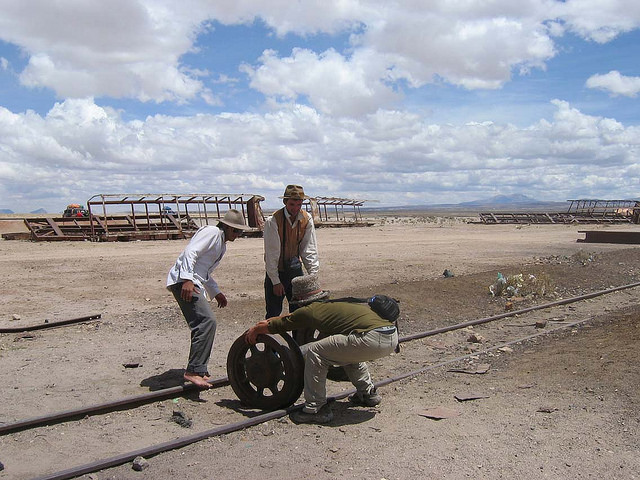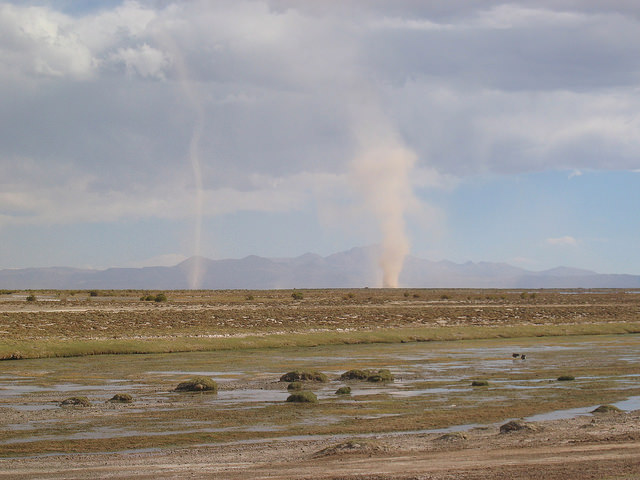- Business Game
- Training Game
- Managing Meetings
- Communication
- Problem Solving
- Teamwork
- Decision Making
- Ice Breaker
- Assessment & Recruitment
- Leadership & Management
- Negotiation
- Conference
- Seminar
- Event
- Requirements
- Energiser
- Silo Busting
- Team Cooperation
- 40 or More People
- Conflict Management
- Risk Management
- Off the Shelf
.
Survival by Teamwork Business Game | Survival by Teamwork Training Game
Test your desert survival skills: Prioritise items individually and as a team, highlighting the importance of teamwork
TIMING
30 to 60 minutes + debrief
NUMBERS PER GAME
Unlimited. We recommend 3-12 participants per facilitator/team
WHO WILL BENEFIT?
Staff at any level
COMPUTER
Not required
LICENCE FREE
No restrictions on the number of times you can use this game
PRICE TO BUY OR FACILITATE
Buy: £180 + delivery & VAT (if applicable)
Elite Facilitate: £850 + VAT for up to 48 delegates at your UK venue
An excellent icebreaker and business training game to experience team performance exceeding individuals’ and practise conflict management skills when opinions differ.
PURPOSE
Use this popular training game as an icebreaker; in assessment centres or as an activity to help develop key skills:
- Conflict management
- Communication and consensus skills
- Decision making and problem solving
- Leadership, management and supervising
- Managing meetings
- Influencing and negotiation
- Team development.
SUPPLIED WITH THE GAME
- Trainers Guide, including information on how to run the game and apply learnings in delegates' roles
- Team Instructions with ranking table
- Ranking table answers
- Observers' Instructions
- Debrief Sheet
BENEFITS
- Portable, simple to set up and supplied with clear instructions and debrief suggestions
- Buy 'off the shelf' and use as many times as you want or let Elite's trainers facilitate for you
- Attractive, absorbing and challenging
- Versatile to meet a wide range of learning objectives and appropriate to any group with a shared language
- Acts as an ice breaker and leads to greater understanding between group members
- Survival by Teamwork focuses on team performance and practising conflict management skills when opinions differ
- Highlights the need for both effective team and individual skills
- Excellent learning and development game to use at team building and training events, or facilitating remotely.
- Used by companies, organisations, schools and universities
THIS ACTIVITY HELPS DEVELOP ESSENTIAL TEAM WORKING SKILLS
Communication
Listening skills and influencing are key to this activity. There will be an exchange of ideas, feelings, intentions, attitudes, expectations and perceptions - all important areas for effective communication.
Conflict management
Participants invariably choose different solutions in response to this situation, so conflict develops. Sometimes a participant will say "I don't care what the rest of you are going to do, I am going to ....." How does each participant deal with the conflict?
Consensus
All participants need to work together to find a mutually acceptable solution (rather than producing a "we-they" situation). They will discover that a key positive of achieving consensus is that no member feels violated or ignored; this results in higher-quality decision making and stronger commitment to the agreed solution.
Decision making and problem solving
- Here are just a few of the many questions participants in the training game will have to answer:
- Should they go for help or should they stay?
- What is our strategy - survival or rescue?
- What items are important for these?
- What are the best options for solving this?
- What should we do when half the group have prioritised an item and the other half want another item?
- We are running out of time; how can we achieve the best result in the time left?
Influencing and negotiation
Participants will have different ideas and priorities, but as a team must agree on a strategy. If they fail to negotiate a successful solution, lives can be lost! Much negotiation and influencing will need to take place.
Leadership, management and supervising
If the participants do not choose a leader/chairperson, there is a need for a natural leader to evolve and take charge. Otherwise they will run out of time and bad decisions will be made. The leader also has to:
- Create a positive, informal atmosphere
- Agree common objectives, targets and standards
- Co-ordinate the team's efforts and provide direction
- Ensure that all team members actively contribute to achieving these goal
- Ensure open communication
- Set an example and manage time effectively
- Support and motivate.
- Managing meetings
This training resource is excellent for demonstrating how and how not to chair a meeting effectively, providing useful insight not just for the group leader, but for all participants.
Team development
As well as benefiting from the practicalities of this training activity, participants will also be involved in a useful debriefing session, which will ask questions such as:
- How do you feel you handled the activity?
- How well did you organise yourselves at the beginning?
- Did you have a strategy? Did it work? If not, why not
- What barriers to communication were present?
- What went well for you?
- What did your team do well?
- Where could your team have done better?
- What are the key learning points that you can take back to your workplace?
THE TRAINER'S ROLE
Read through the Trainer's Guide and briefing sheet to ensure you are familiar with the activity and your role as facilitator
Explain to the group the scenario they are going to deal with and ask them to individually rank the items in order of importance. They have 10 minutes to complete this task.
When all participants have completed their individual ranking, explain to the participants how to reach a consensus and issue them with a copy of the Consensus Seeking notes.
Tell them they have 20 minutes for a small group (up to 45 minutes for a large group) to work as a team and reach a team consensus.;
Share the expert's opinion with the participants so they can compare their individual and team rankings with the experts. In most cases the Team Difference score is better that the Individual Score i.e. the team's rankings were closer to the experts.
Debrief both the individual and group part of the game.
Comments from the Survival by Teamwork Game
“We use this for so many training courses; it is an invaluable training activity.”
“It is so easy to run and participants reveal a lot about themselves. This ‘live data’ is so useful for us when debriefing.”
“We tried this training game at an assessment centre and it worked so well, we use it regularly now.”
ABOUT US
- For over 20 years we've been delivering excellent management training and personal development skills to businesses and public sector organisations across the UK.
- Our trainers enhance the learning experience with our high energy, results driven approach.
- Experiential learning with business games and training materials help participants acquire essential knowledge and skills through active, self-reflective engagement and enable them to remember the key learning points.
WHY CHOOSE ELITE TRAINING
- Training Courses: Skilled and experienced trainers that develop and understand your needs and deliver enjoyable, tailored and cost-effective in-house training.
- Business Games: Fun and realistic, sold worldwide to use over and over again for quality development.
- Team Building: Injecting training expertise, real-life examples and fun to draw out key learnings.
- Coaching: Results driven executive and business coaching, creating environments where people develop and thrive, improving performance.
- Development Programmes: Tailored and bespoke programmes, developing and inspiring leaders, supporting strategic objectives and business change.
OUR CLIENTS
Here are some of our customers who appreciate our experience in training and enjoyed our courses and business games:
| BALFOUR BEATTY | COCA-COLA | GLAXOSMITHKLINE | GOLDMAN SACHS |
| IKEA | JOHN LEWIS | PWC | WALMART |
If you are interested in finding out more about our Survival by Teamwork game please fill out the form, or call us on:
+44 (0) 20 3290 1473
Elite Training will not pass your contact details on to any third parties.
Follow us
Contact
Elite Training European Ltd
39 Douglas Road
London
E4 6DB
United Kingdom
Telephone: +44 (0) 20 3290 1473
Email: info@elitetraining.co.uk



